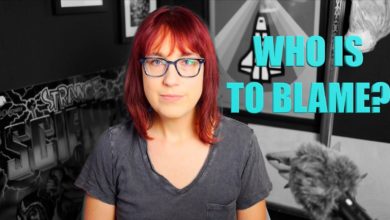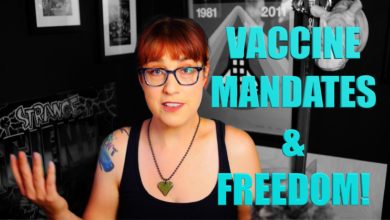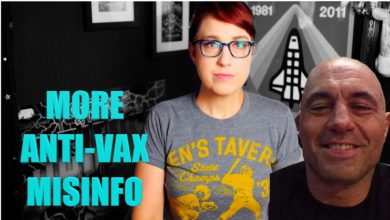How the NY Times is Going to Kill More People
No, You Still Shouldn't Travel for Thanksgiving
This post contains a video, which you can also view here. To support more videos like this, head to patreon.com/rebecca!
Way, way back in the mid-2000s, when Gnarls Barkley debuted, we got our first Borat movie, and the worst president we knew of was George W. Bush, science communicators had some very tiring fights amongst ourselves. Specifically, we fought a lot about a thing called “framing,” which was popularized by Chris Mooney and Matt Nisbet as a sort of rebuke against those who were, for instance, fighting against creationism by sharing pictures of Jesus riding a velociraptor. Or cradling a velociraptor. Or being a velociraptor. Look, I don’t know, velociraptors were very funny back then.
Mooney et al argued that the average person would not respond well to mockery of their fervently held beliefs, and that if we wanted to actually sway people, we had to understand their psychology and develop a science-based plan to convince them to, well, accept science. Into their hearts.
Not only did they argue that outright mockery should be off the table, but they also argued that scientists would not win people over with simple, unemotional facts. Someone who insists the Earth is flat isn’t going to be won over by logic because they didn’t logic themselves into that belief in the first place. Writing in Science in 2007, Mooney and Nisbet argued that “scientists must realize that facts will be repeatedly misapplied and twisted in direct proportion to their relevance to the political debate and decision-making. In short, as unnatural as it might feel, in many cases, scientists should strategically avoid emphasizing the technical details of science when trying to defend it.”
You might hear that and think “Yeah, that makes perfect sense, where’s the argument” but let me tell you, it was a whole thing. Ironically, scientists and science communicators didn’t appreciate being told that their methods were straight up wrong and damaging and that they need to change. Like, even if those were “facts” (which they aren’t, they are merely one way of looking at the sociologial data), weirdly the framing proponents were only proving themselves right by trying to change people’s behaviors with “facts” instead of, you know, framing it in a more palatable way. Like, “We’re not going to make you burn your raptor jesus painting but maybe if it’s not in the background of your YouTube videos then Christians won’t immediately turn off your channel and never come back.”
Okay, so all that was 15 years ago. Why am I thinking of it now? Well, it popped into my head thanks to a recent New York Times piece by Farhad Manjoo, who I have hung out with before and liked, and consider a Twitter friend. But wow did they fuck up. Manjoo wrote an article about their family’s “bubble,” including a partner and two children who are in learning pods, in anticipation of possibly traveling hundreds of miles to see their parents for Thanksgiving. It’s honestly a great article at first, because Manjoo manages to talk to a bunch of the people in their bubble, and their kids’ bubbles, to find out how big their bubble really extends. It’s all illustrated very nicely, too, with easy-to-follow color coordination and the whole deal. And it seems to be building to a great conclusion: Manjoo writes “Once I had counted everyone, I realized that visiting my parents for Thanksgiving would be like asking them to sit down to dinner with more than 100 people.” And considering that their parents are elderly and have several health complications, that’s an easy decision. But! Not so fast.
Manjoo wrote, “shame me if you must, but my wife and I Decided that we would travel for Thanksgiving, though with a few added measures for safety.”
I’m sorry, what?
“We’re pulling our kids out of the learning pod for a week before we leave.”
Okay, well it should really be two weeks, the length that they’d need to quarantine to be sure they’re not infected, but fine.
“We’re driving to my parents’ house, not flying.”
Okay, but that’s hundreds of miles. Are you stopping along the way? Considering that this is the biggest travel week each year in America, what if the roads are bad? And considering how common car accidents are, what if there are accidents? What if you’re in an accident during a time when medical personnel are already, as of this very moment, completely overwhelmed and taking triple shifts and transferring COVID patients to children’s hospitals?
“We’re looking into getting tested before we go, and probably after we return.”
I’m sorry, “looking into?” “Probably after we return?” What the actual fuck? If you ask me if I’m free to help you move apartments next month, I could say I’m “looking into” my schedule for that day and “probably” could help, which means “FUCK NO I’M NOT DOING THAT, HIRE MOVERS.” It’s weasley language.
And here’s where I started thinking about framing. Because honestly, millions of Americans are making these same calculations. “How many people are in my bubble and the bubble of the people I want to hang out with? What precautions are we all taking? What’s the risk? How much do I really really really want to do it regardless of the risk?” And it’s understandable that some of them are going to choose poorly. They’re going to travel, they’re going to see their relatives, and the pandemic is going to get worse. Do I blame them? Absolutely. But more so I blame the complete lack of governmental leadership that has forced all of these laypeople to consider these calculations. Our government could have said “You must wear masks, you cannot travel, you cannot leave your household, until this is over.” But they didn’t, which is why we are on month 8 of this disaster and people are fed up and willing to make a terrible decision.
So while I blame the individuals who are making these bad decisions, I’m not going to call them out individually and shame them here. In fact, that might be bad framing, which could encourage some people to go out and do even riskier things while the systemic problems that led to this happening in the first place will remain. But I am going to call out Manjoo because for fuck’s sake, they’re a science communicator writing in a newspaper with a circulation of about half a million people. They’re article has a lot of great facts in it, but because the framing is so god awful people are going to read it and come away thinking “oh, I can travel, too.”
Because what more obvious fact is there in this pandemic than “more than a quarter of a million Americans are dead who shouldn’t be,” and “if you stay inside no one else has to die,” but as Manjoo themself makes clear (again, the irony), facts pale in comparison to the simple statement: “But I don’t want to.” And the more people think “I don’t want to” is an acceptable response, the more people are going to die.
After a very quick and healthy backlash online, the New York Times quietly edited Manjoo’s piece to say that they’re going to have dinner outside (in November, with no notice or mention of separate tables or heaters), and that they won’t be staying at their parents’ place. It still says they’ll “probably” get tested, and they point out that they will be unable to stop the grandparents from hugging the grandkids.
But they can stop it. They just don’t want to. So more people are going to die.




